VET Summit 2023 “Advancing Toward the Unimaginable” took place in the Basque Country
01/12/2023
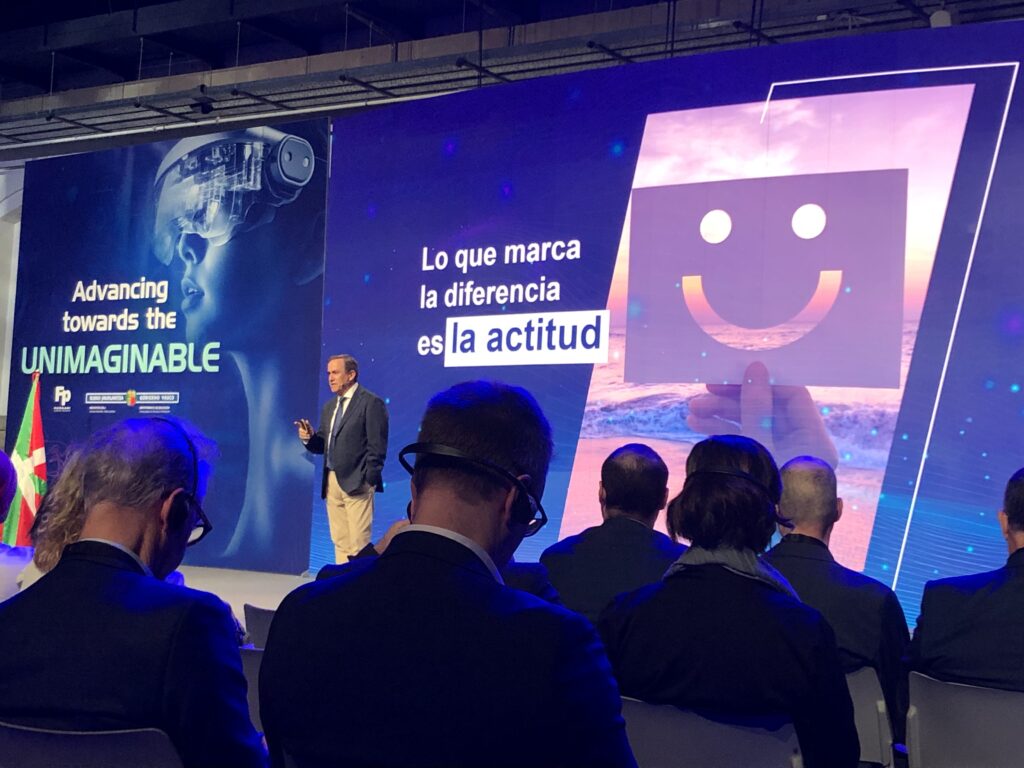
On 22-23 November 2023, the Basque Government Education Department Vice-Ministry of VET (which holds EARLALL’s network Presidency) invited experts in the Education and Training sector to join the VET Summit 2023 and to reflect on the role that humans will play in a technology rapidly changing world.
More than 400 people from 23 countries gathered to jointly discuss the opportunities, challenges, and risks of smart digital transformation. The VET Summit addressed three main axes: smart technologies, life and technology and the human being at the centre of the advance of technology. The Vice Minister of Vocational Education and Training, Department of Education, Basque Government, Mr Jorge Arévalo, in a hologram, explained that the Basque Country Department of Education has been reflecting on how to get ready for the upcoming new society for long. Today, the region is looking at 2040 and is placing human values at the centre to cope with the changes brought about by smart technologies. Training teachers to meet technological challenges is essential to prepare the professionals of the future and ensure that they have the necessary skills demanded by the labour market. This strategy is helping the region to be at the forefront of innovation in Europe.
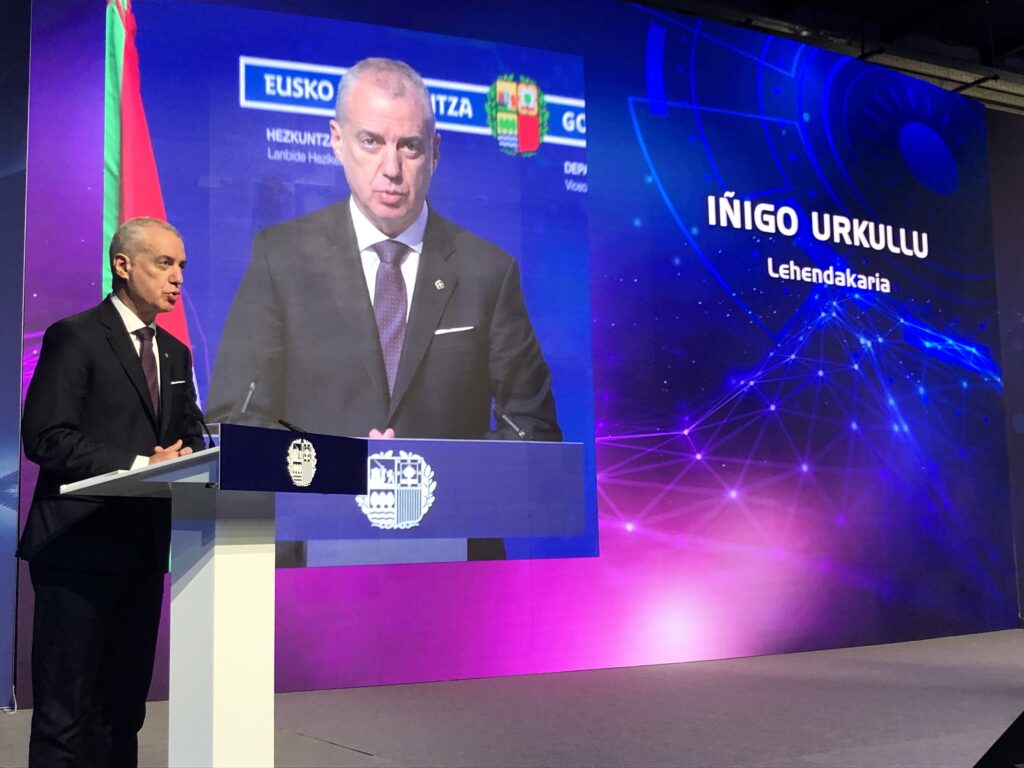
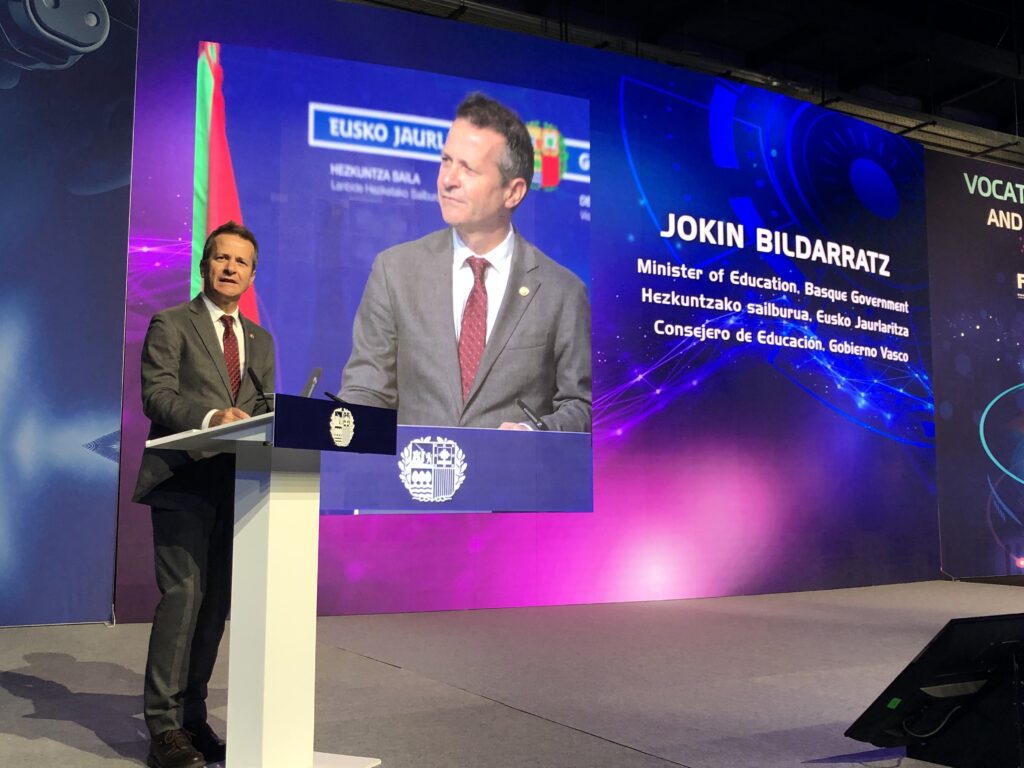
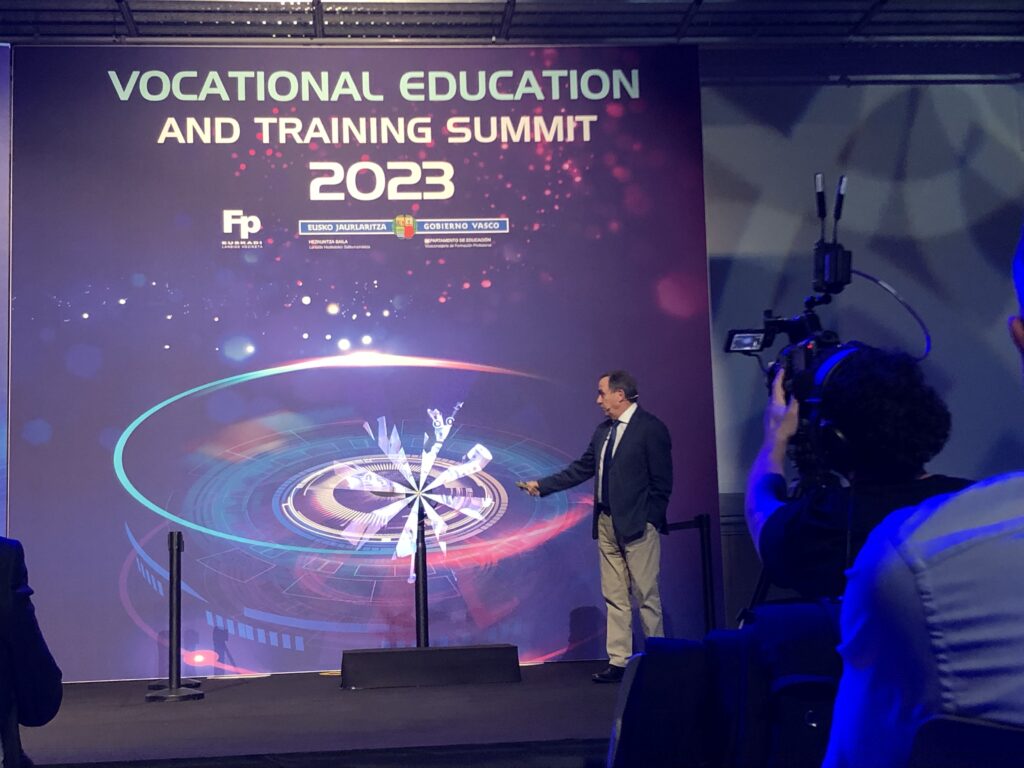
The Basque Country President, Iñigo Urkullu, and the Minister of Education, Jokin Bildarratz opened the VET Summit by underlining the crucial role that VET is playing in transforming the work environment. In particular, they stressed the importance of reinforcing the role of humans in the digital transformation. Mr Urkullu said that though these rapid changes could be frightening, they can be a motivation to prepare for what is coming next. Today, the Basque Country Vocational Education and Training (VET) is consolidated with 30% more students choosing VET, with increasing the number of women in STEM studies, and with 9 out of 10 students who get a job after their VET studies.
The European Commissioner for Jobs and Social Rights, Nicholas Smit, in a video message, highlighted the benefits of Artificial intelligence can bring to the world of work, but he added that humans would need to remain in control of all the decisions. He congratulated the Basque Country for its innovative VET model and strategy which is a role model at the European level.
Professor Pedro Miguel Echenique (University of the Basque Country, UPV) invited the participants to think about the connection between science, culture, and the future. He stressed the importance of training people who would be available to adapt to the change. On top of the spirit of innovation and technical skills, soft skills will be necessary to develop creative solutions to complex problems.
One of the most recurrent questions when we talk about digital transformation is the role that will be left for human beings. Mr Arévalo highlighted that in the society of tomorrow, values will be crucial. The Basque Country VET Centres are being modernised with new learning digital environments to train learners with the skills demanded by the labour market. Not only learners but also teachers, as explained before, are acquiring the skills needed. All in all, the Basque VET system is designed by and for people. Thanks to this and the skills ecosystems (bringing all the actors working together) the region can be more competitive and grow quickly.
The technological transformation can’t come from just one stakeholder. Large companies, start-ups, ICT providers, knowledge agents and public authorities need to work together. Following this spirit, one year ago, the Basque Country Artificial Intelligence Centre was established. This institution is building public-private partnerships for the promotion of AI, as explained by Ms Laura Marrón, its General Director. She reminded the participants that technology is just another tool, the way that we understand each other and how we decide to use the available technology will be our decision.
The afternoon sessions were dedicated to discussing the three axes of the Summit: technology, innovation and future; from industry 4.0 to 5.0; The challenge of being human in the face of an intelligent society 5.0 and VET facing the challenge of smart technologies. EARLALL was invited to participate in this last one, together with different Education and Training representatives, including EARLALL WG Mobility coordinator, Ms Yvonne Jaenchen who introduced the INNOVET network. The session was conducted by Mr Joao Santos (Education and Training expert). Mr Santos invited the participants to think of three unimaginable scenarios for education: quantum knowledge transfer, genetic engineering for skills and neuro-educational virtual reality academies. Most of the participants replied positively to the change. Ms Noelia Cantero, EARLALL’s Director, explained that when thinking about the change in the world of work we must bear in mind that the new generation of learners’ ideas and values of work might be completely different from ours. She added that public authorities are crucial to shaping and driving the change, for example by building #skills ecosystems as in the Basque Country.
The closing day of the VET Summit was focused on philosophy, sciences and life and the role of human beings.
One of the main takeaways of the Summit is the important role that lifelong learning and public authorities must play in digital transformation. On top of that, humans will be essential in this process. Local and regional governments need to embrace human-centric approaches and strategies to cope with global competition and growth.
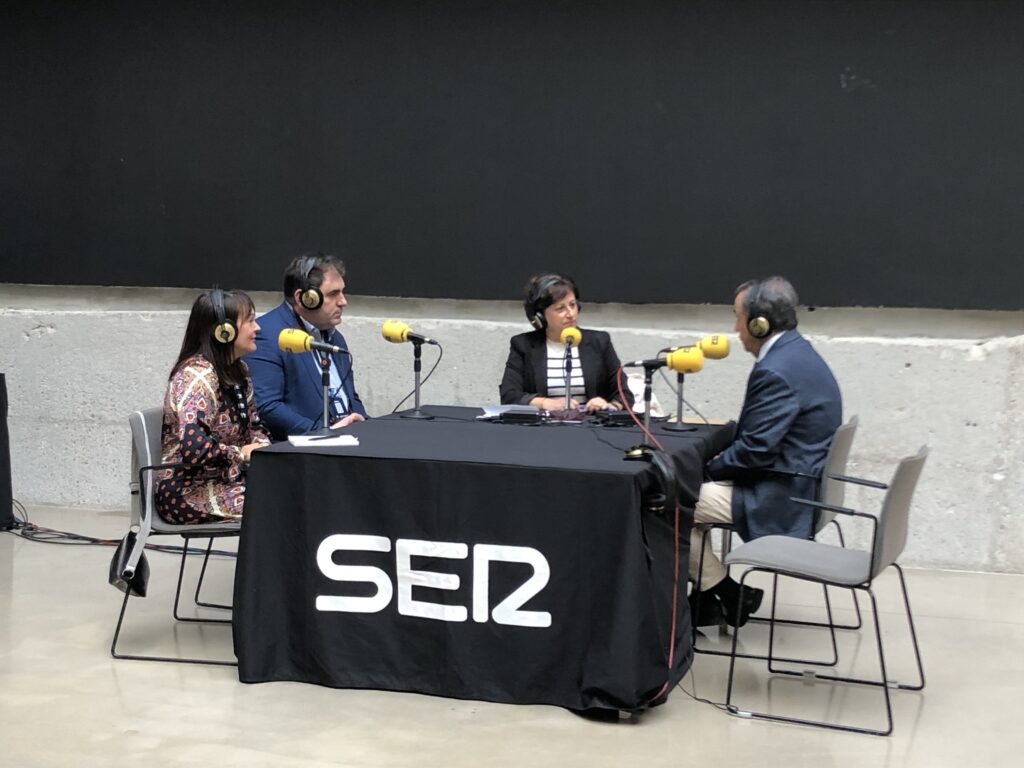
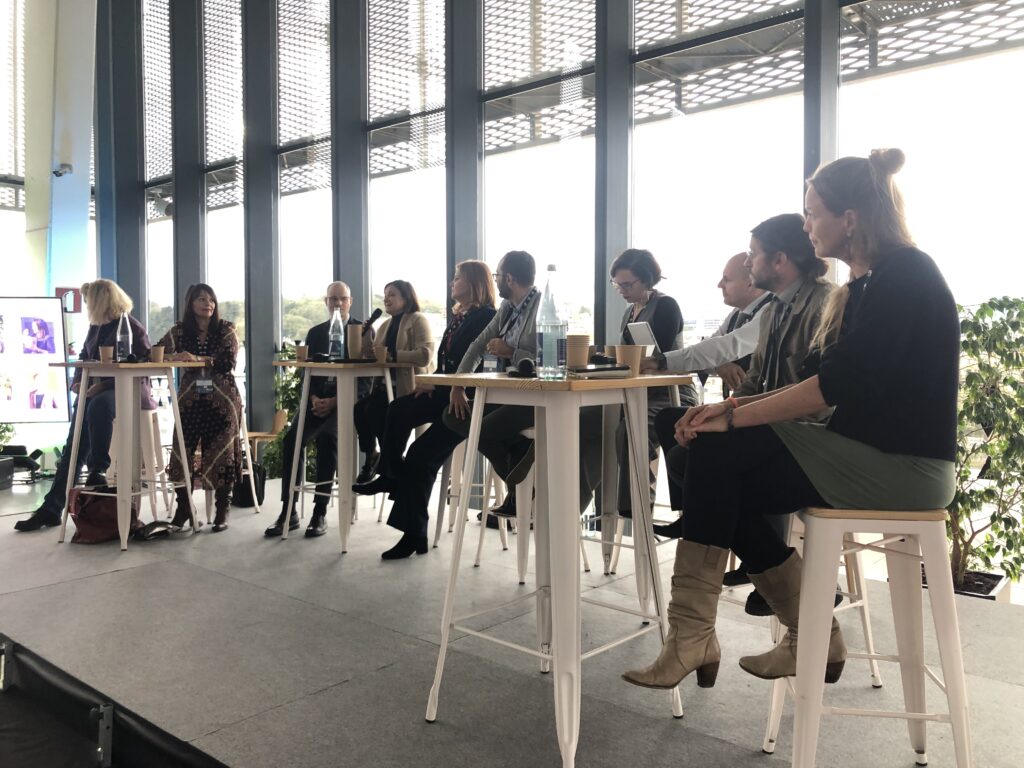
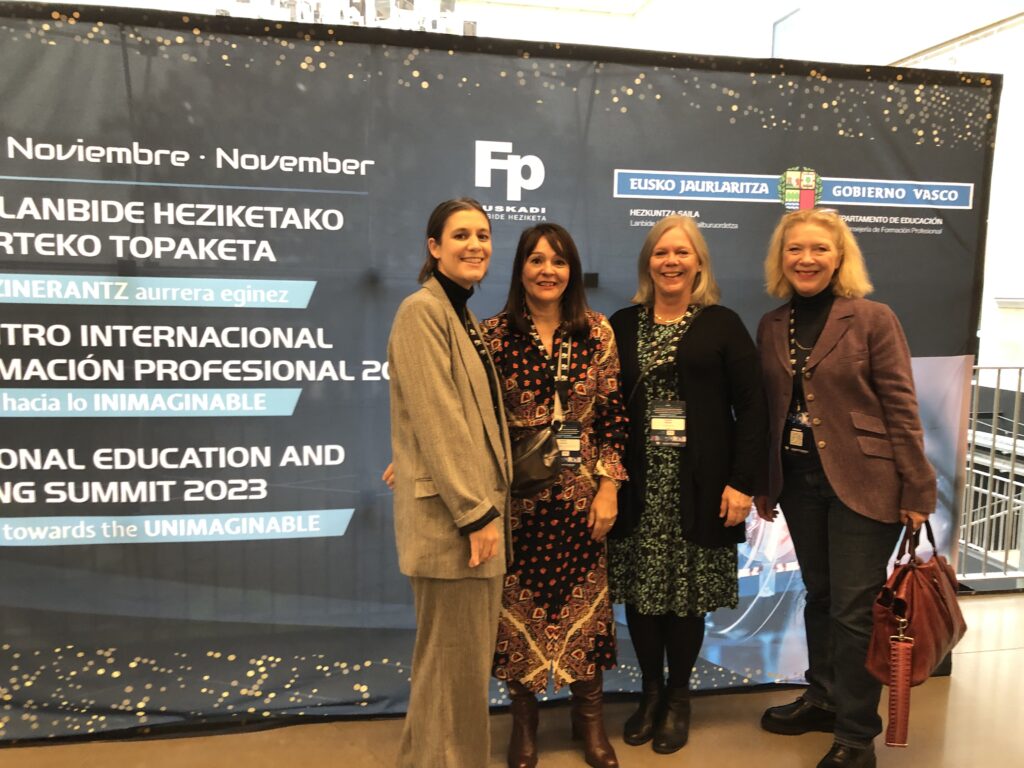
Cooperation is key to fostering innovation, competitiveness, and growth within regions
Following the interview with Mr Jorge Arevalo, EARLALL’s Director, Ms Noelia Cantero, and TKNIKA (Basque Applied Research Center) Director, Mr Jon Labaka, were interviewed as well by Spanish local radio, La SER. Ms Cantero explained that the EARLALL network has a crucial role to play in this fast-changing world. The network is promoting the exchange between 12 regions and 5 associate members working in lifelong learning. Thanks to these exchanges, regions can learn from each other and implement innovative models based on what has already been tested, such as the Basque Country Educational strategies. Cooperation and exchanges are essential to keep growing and to remain competitive in Europe. TKNIKA is one of these educational excellence models, as explained by its director Jon Labaka. For a long time, the regional VET systems have been working in different networks, not only national but also international. Ms Cantero and Mr Labaka agreed that one of the takeaways from the Summit and for the society as such is to keep working on the values and stressing the important role that human beings play in our societies.




